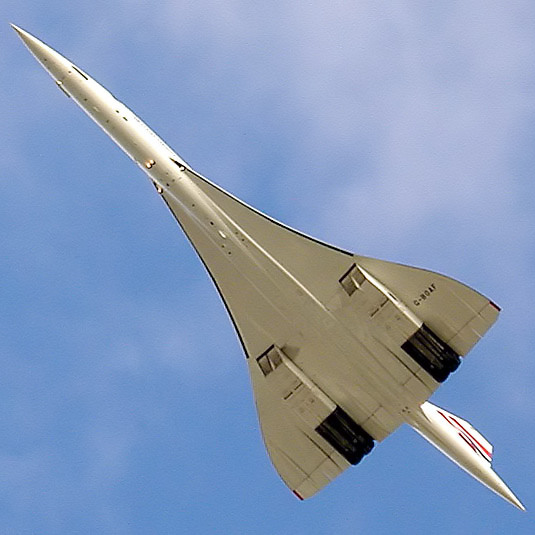Between October 24th and November 26th, the five year anniversary of an event will pass; an event which Jeremy Clarkson described as “a giant leap backwards for all mankind”.
For the first time in our history, we went backwards in aviation, retiring a plane, which had no replacement then, has no replacement even today, and has no replacement appearing on the horizon in the next 10 years.
Concorde was a supersonic passenger airliner or supersonic transport (SST); a product of the combined manufacturing efforts of Aérospatiale of France, and British Aircraft Corporation, with only 20 aircraft ultimately built.
At the time of her introduction, Concorde was heavily criticised. Environmentalists, the U.S. Senate and faceless bureaucrats — highly intelligent people, so often found working in government, calling her a Golden Albatross.
The tens of thousands of people who flew her, over her 27 year history, have proved them completely wrong, giving Concorde a place in aviation history unmatched by any other aircraft.

When we see any other aircraft, we may say “there is A Boeing 747” or “A Triple-7” (Boeing 777), or even “AN Airbus 380 superjumbo”, but not Concorde. For she was and still is, just that … Concorde.
Flown by British Overseas Airways Corporation BOAC (later British Airways), Air France, and for some time by Singapore Airlines (painted half in BA livery and half in SQ livery), and Braniff International Airways, Concorde remains an icon of aviation history, known as “Concorde” rather than “the Concorde” or “a Concorde”.
Whether standing at an airport, taking off, flying supersonic, or landing, Concorde was poetry, even giving a sense of supersonic motion when standing still; a majestic, supremely elegant bird. The drooped nose, delta wings, and undercarriage, uncannily resembling an eagle, whether soaring up towards, or in, the skies, or looking to grip the runway, while landing.
On the evening of 23 October 2003, the Queen consented to the illumination of Windsor Castle as Concorde’s last west-bound commercial flight departed London and flew overhead, an honour normally reserved for major state events and visiting dignitaries.
British Airways retired its aircraft the next day, 24 October, 2003. G-BOAG left New York to a fanfare similar to that given for Air France’s “F-BTSD”, while two more made round trips, G-BOAF over the Bay of Biscay, carrying VIP guests including many former Concorde pilots, and G-BOAE to Edinburgh. The three aircraft then circled over London, having received special permission to fly at low altitude, before landing in sequence at Heathrow. The two round-trip aircraft landed at 4:01 and 4:03 p.m. BST, followed at 4:05 by the one from New York. All three aircraft then spent 45 minutes taxiing around the airport before finally disembarking the last supersonic fare-paying passengers. The captain of the New York to London flight was Mike Bannister.
For 27 years Concorde truly represented the radio call sign of all British Airways flights — Speedbird. She was “Speedbird ONE heavy” from London to New York, and “Speedbird TWO heavy” on her return.
October 24th, was a poignant moment for me, along with the rest of world, who stopped and watched, this graceful bird take off from Runway 31L. Even today, my heart races, and then I sigh, with tears in my eyes, when I remember that I will never see Concorde in flight again, except in videos.
In tribute, the tower at JFK airport, had the same air traffic controller who issued the first landing clearance to her back in 1977, issue the final take-off clearance to Concorde.
As an American, I was very happy and proud that Concorde G-BOAD, which is Concorde with the most flight hours at 23,397, was to be displayed at the Intrepid Sea-Air-Space Museum in New York City.
But I was ashamed to read on NYCAviation Forum, that my fellow Americans, in New York, could not look after her well. The image below, from the forum, is shockingly disturbing.

Write to the managers of the Intrepid Museum, and sign the petition to bring back Concorde.
For now, please enjoy some video’s of Concorde’s last day of commercial flight. If you would like to know more about Concorde, please visit www.ConcordeSST.com.
And to the bean-counters who cite economics, I give them a reason to have Concorde back …..
It is unmatched inspiration for the soul.
Images courtesy Wikipedia
 Bangalore Aviation News, Reviews, Analysis and opinions of Indian Aviation
Bangalore Aviation News, Reviews, Analysis and opinions of Indian Aviation




